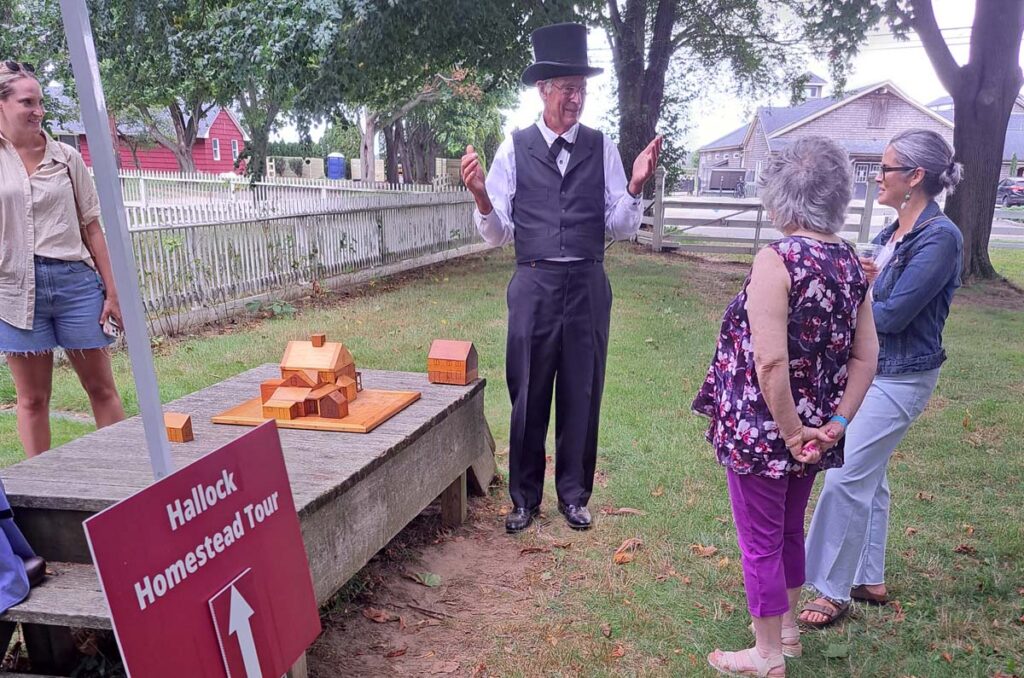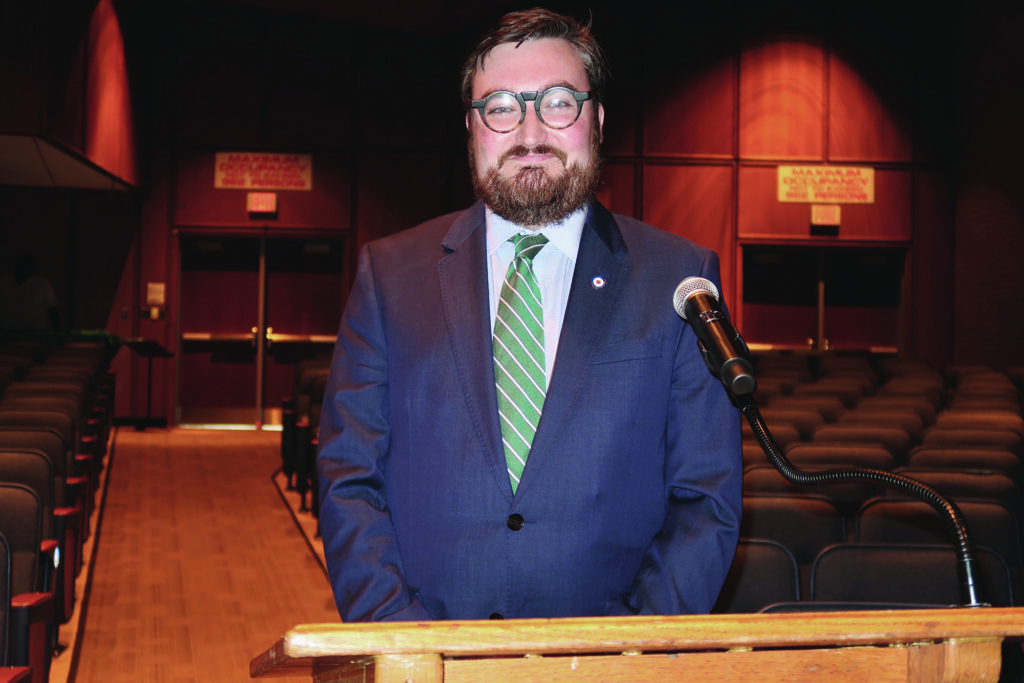Vail-Leavitt Music Hall back in the hands of Riverhead

A dispute between the Council for the Vail-Leavitt Music Hall and the Town of Riverhead has reached its conclusion after three decades.
The council has ceded the over 140-year-old venue to Riverhead Town officials, who adopted a resolution May 17 to authorize legal action against the group to repossess the property due to concerns about the theater’s upkeep.
“We were pleasantly surprised, and happy they made the decision to give the theater back to the community,” said Dawn Thomas, director of community development for Riverhead Town. “The town hopes to reconvene, reconfigure and make a plan for it to be a very successful part of the economic development of the downtown.”
William Miller, president of the theater council , said the group has withdrawn completely from stewardship of the theater as of this month and will not defend itself against the reported lawsuit the town filed in August.
“We’re out of money,” Mr. Miller said. “We can’t fight this fight anymore.”
The Vail-Leavitt Music Hall was founded in 1881 — making it the oldest theater in downstate New York, according to its website — and has hosted countless theatrical, musical and cultural presentations over the past century. The building is also listed on the national and state Registers of Historic Places.
Harold Smith, a past theater council president, and then-Riverhead Town supervisor Joseph Janoski signed an agreement March 18, 1982, to allow the nonprofit organization to purchase the theater using a $40,000 in Community Development block grant funds, according to a previous Riverhead News-Review report.
The agreement specified that the music hall must be used as a theater for public assembly in a condition which “maintains the historic integrity” of the building and offers “cultural and educational opportunities” to residents.
The deed contained a reverter clause, which would grant Riverhead Town permission to recover the music hall “if this provision is not kept by the council, or any succeeding group which might receive the structure should the council go out of existence,” the report said.
A building condition survey conducted in January by the town’s community development department revealed that many parts of the building — specifically its roof and exterior facades— are generally inaccessible, and that specialized equipment would be required to address any issues in those areas.
Adding up all the needed repairs, the survey projected the cost would total roughly $168,000.
The ownership battle between the town and the Council for the Vail-Leavitt Music Hall has been ongoing since the late 1980s and early 1990s. In January 1990, the town received $290,000 from the state Urban Development Corporation to help with its downtown revitalization initiative, according to News-Review reports.
At that time, the town was told it would also be eligible for a $300,000 State Environmental Quality Bond Act grant to restore Vail-Leavitt Music Hall — if the dispute between the two parties could be settled.
In February 1990, the Riverhead Town Board issued an ultimatum to the theater’s council, demanding to get the deed back so the town would be eligible for this state matching grant. Mr. Janoski said if the Vail-Leavitt council would hand over the deed to the town, they would allow the council to continue managing the theater.
However, under the town’s terms, the council were told they had to raise $150,000 in the first six months “to prove their fundraising capabilities.” If they didn’t, the council would “drop out of the picture,” Mr. Janoski said at the time.
Members of the council at that time criticized the supervisor’s request. An editorial in the Feb. 1, 1990, Riverhead News-Review called it “an onerous task.”
Fast-forward to present day, and Riverhead Town officials stand by the claim that the council did not fulfill its obligations to maintain the theater. Mr. Miller said council members have been active and doing “quiet work” on the buildings to meet the requirements of the town and the Riverhead Fire Department.
“When the town says it is dilapidated, neglected and what have you — that’s not true,” he said. “You got a bunch of people who were looking after it, using their own money and whatever we could scrape up, and we kept it in pretty good shape.”
Last year, Riverhead Town won a $10 million Downtown Revitalization Initiative grant. When town officials met to discuss how to distribute the money for projects, a proposal to make improvements to the Vail-Leavitt Music Hall was “unlikely to make the final cut,” according to previous reporting.
The proposal requested $200,000 from the DRI grant to make these improvements. Town officials said the council needed to come up with a building plan and fill out a separate application to receive funding, which they allegedly failed to submit.
Mr. Miller called this claim “baloney” and said the council filed two separate comprehensive business plans with the town.
As for the future of the theater, Mr. Miller said he hopes the town can apply money from the DRI grant to the theater so it can keep going. Between the lack of seating in the venue and limited parking, he said, it is hard for the music hall to make money.
“If we got somebody in there with money, it should work,” Mr. Miller said.
Riverhead Town officials will have more information in the coming weeks on what they plan to do with the theater going forward.
Kristy Verity, executive director of Riverhead’s Business Improvement District, said the Vail-Leavitt Music Hall is a “gem” of Riverhead that needs to be updated.
She added that she’s aware the Town Board is working on forming a committee and looking for professionals in the theater industry and who manage historical venues to help steer them in the right direction.
“It’s just a very underutilized space,” Ms. Verity said. “The entire venue needs to be refreshed — anything to help move that along, to see it take on some life and start becoming the wonderful theater that we had many years ago.”








